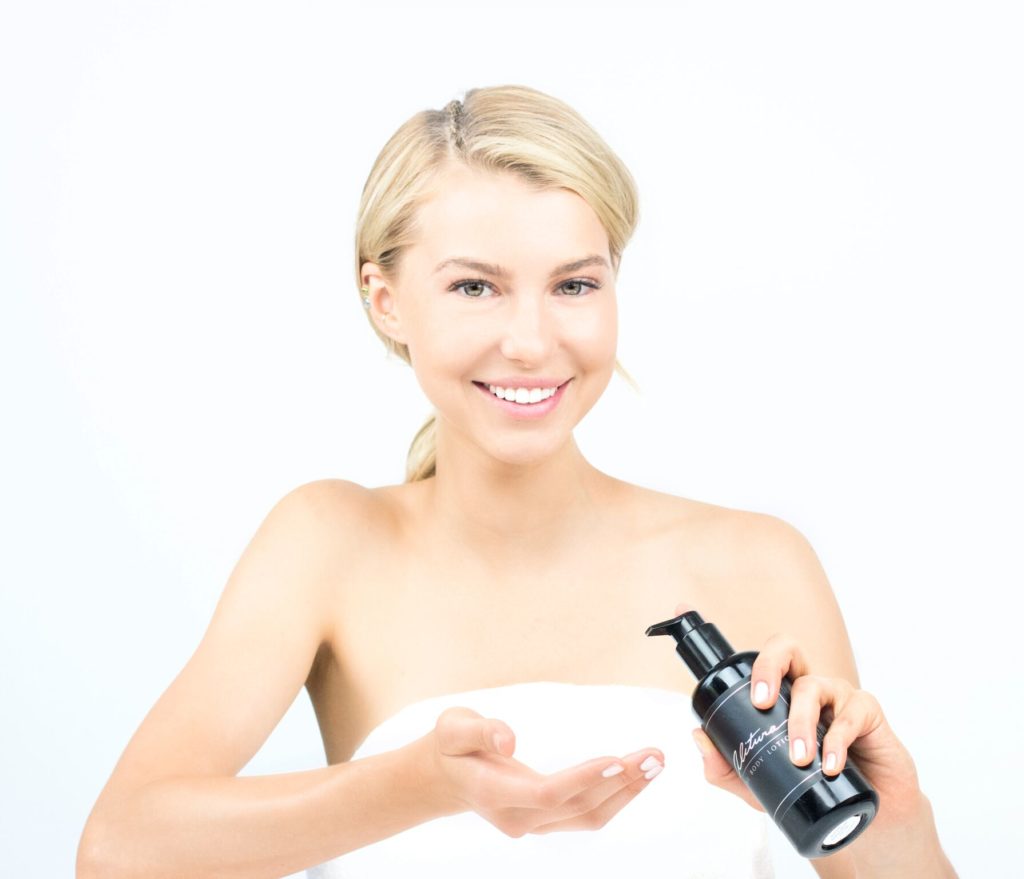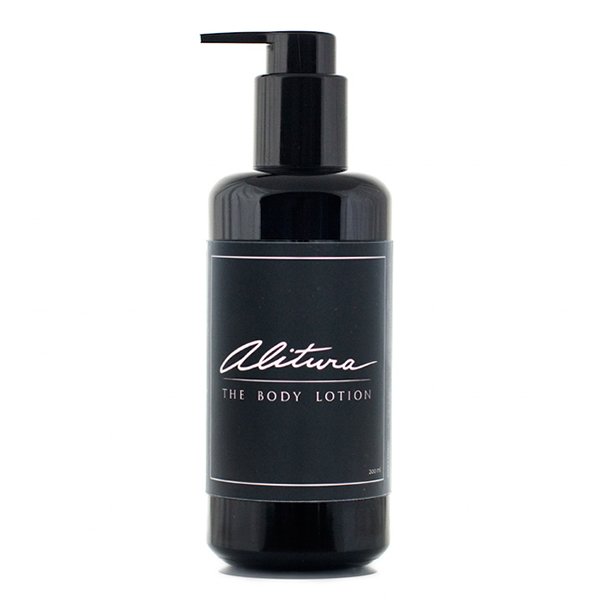Over the last century, people have used many different forms of “sunscreen” in an attempt to block out ultraviolet light emitted by the sun. The early sunscreens resembled that of a DIY sunblock paste you might find on Etsy, consisting mostly of a zinc oxide base. These were largely unpopular due to their pasty texture. Over time, the formulas became both smoother and increasingly more complex and toxic, possibly causing more harm than good.
Although most of the sunscreen sold today have pleasant scents and packaging, they also happen to contain a plethora of toxic chemicals. Some of the chemical ingredients in conventional sunblocks may even increase the risk for skin cancer as well as lead to a variety of surface disorders and even damage internal organs.
Is Ultraviolet Light Truly to Blame?
One major flaw in the development of most sunscreens is that they aim to only inhibit the so-called harmful ultraviolet light from reaching the skin. When the fact of the matter is, most of the damaging effects associated with UV-light comes down to a chemical reaction that occurs in the skin tissue.
Ultraviolet light itself is not incredibly destructive, and blocking all UV light may actually come with negative implications. Ultraviolet light damages skin cells by interacting with unsaturated fats that have accumulated in the skin tissue. Unsaturated fats have a chemical structure consisting of a double-carbon bond, which is highly unstable and susceptible to free radical damage. Oxygen, heat, and light mix with reactive oxygen species (free radicals) leading to free radical damage that ultimately leads to skin damage.

Unsaturated fats can accumulate in the skin tissue for a few primary reasons; through eating them, the application of them on the skin, or as a breakdown product from metabolic stress. Unsaturated fatty acids are produced when the body is not able to metabolize sugar efficiently and instead relies on alternative substrates. The body then begins breaking down fats to use as energy, however, only the glycerols are turned to energy, leaving the fatty acids free to circulate in the blood and accumulate in the tissue.
In fewer words, the worst damage caused by ultraviolet light is done by the oxidation of unsaturated fats. Ultimately, this data shows that there is a more physiologically reliable way to protect our skin from sun damage. But before we go there, let’s explore in more detail how common sunblock may be worsening your defenses against skin damage…
The Most Damaging Effects of Sunscreen
As mentioned, most conventional sunblocks are formulated based on wrong science, overlooking the true effect of sunlight on the skin. Because of this, most sunscreens are poorly formulated, causing more harm than good.
Although the 17 common ingredients used in skincare efficiently block UV light, like unsaturated fats, they themselves are highly reactive. They are destroyed once the sun hits them, which is why most sunscreens need to be reapplied often. Additionally, this means that the common sunscreen is ultimately bringing out the effects one tries to avoid. Sunscreen tends to soak into the skin, where is then oxidized rather quickly by the skin, causing oxidative damage.
A simple analogy to understand this effect would be to consider the highly reactive sunscreens similar to basting a turkey before you cook it. The chemicals in common sunscreens are often just as volatile as unsaturated fats; therefore, worsening or accelerating the chances of skin damage under the influence of sunlight.
If this weren’t enough reason to ditch conventional sunblocks, they have additional negative implications, here are just a few:
1. Endocrine Disruption
9 of the 15 chemicals found in most commercial sunscreens are known endocrine disruptors. So not only are these chemicals highly reactive to sunlight, but they also interfere with the normal function of endocrine glands, leading to hormonal imbalances.
For example, estrogen, progesterone, testosterone, and thyroid hormone are all negatively altered by the chemicals in sunscreen. An imbalance in these hormones caused by these chemicals can lead to a lot of issues including abnormal development of fetuses and growing children, large breast in small girls, or small testicles in growing boys, low sperm counts, infertility, breast, ovarian, prostate cancer, and even skin cancers! 1
The combination of high estrogen with low progesterone and low thyroid caused by these chemical decreases the overall resistance of the body, predisposing it to seizures, excitotoxic damage, and causing the thymus gland to atrophy, which is the most important immune gland. This hormonal imbalance can directly lead to accelerated skin aging too, considering that estrogen can weaken the integrity of the skin where progesterone and thyroid protect it.
2. Increases the Risk of Skin Cancer
Interestingly enough, chemicals used in sunscreen lotions are mostly PABA derivatives, which are known to react viciously with light. They are easily absorbed in large quantities into the deeper layers of the skin, where they can cause mutations.
For example, many recent studies have found that the sunblocks which are supposed to decrease the normal skin damage caused by ultraviolet rays, actually increase the risk of developing melanoma. Again, this is largely due to the fact that these chemicals are often more reactive than any natural unsaturated fatty acids or compounds of the skin. These chemicals thereby cause mutations when the skin cells’ chromosomes interact with the chemicals in sunscreen and the light. In other words, these chemicals actually make the skin more sensitive to the sun’s rays.
To top things off, there is zero research that shows the chemical ultraviolet blockers are even safe.

Safe Sunscreen Alternatives
At this point, you are likely wondering what your options are. For us, the science is clear: chemical sunblocks are doing more harm than good. It seems a safer bet to just go without them and minimize sun time, avoiding sunburn. However, there are other things that can be done to minimize oxidative damage.
Here are some simple, yet safe and natural things you can do to increase your resistance to the sun's effects:
Minimize Unsaturated Fatty Acids
As mentioned many times, the most damage is caused by the sun’s rays interacting with unsaturated fats in the skin tissue. These accumulate for three major reasons: metabolic stress, the consumption of them, and applying them to the skin.
Three simple ways to reduce the accumulation of unsaturated fat is first by optimizing metabolic function. In short, when the body is stressed, it cannot breakdown or metabolize glucose efficiently. This leads to increased production of free fatty acids, which can accumulate in the skin and are largely implicated in diabetes (metabolic disease). Since the thyroid gland rules metabolic function, you’ll want to start taking good care of that thyroid.
Moving along, we strongly suggest avoiding the consumption of unsaturated fats, which are highly damaging to the body. You can learn more about what fats to avoid here.
Lastly, as we discussed in this article, applying unsaturated oils to the skin may decrease your skin's resilience and increase the risk of skin again. This is why we recommend only applying more saturated oils to the skin like coconut oil, cacao butter, and olive oil.
Organify Your Skin Care
The ultimate protection from the sun’s damaging effects is to optimize the integrity of your skin cells. The body, in its most natural state, is actually quite resilient. Unfortunately, most modern people have weaker immune systems, due to the large amount of environmental stress we are exposed to daily. Many aspects of our modern environment contribute to the suppression of our health.
As we already discussed in great detail, something as simple as sunscreen can disrupt endocrine function, leading to hormonal imbalances that directly destroy our immune systems. And these effects do not stop at sunscreen; most conventional skincare and/or personal care products have very similar effects. In fact, it is estimated that women apply over 168 chemicals to their body every day, and a large portion of them are known toxic substances.
So in addition, to finding natural alternatives to conventional sunblock, we would advise swapping all of your personal care and skin care products for safe, natural alternatives. Be sure to check out our online shop for a wide variety of safe, effective and natural skin care products. Each Alitura product is formulated with clinically proven, natural ingredients.
Caffeine & Niacinamide
Some interesting research has been done on the combination of topical caffeine and niacinamide. Research shows that this combination works literally as a sunscreen, making it a wonderful option for people who do not want to be exposed to the toxic excipients in commercial sunblocks. For those of you who might not know, niacinamide is a substrate of B3, or niacin. Both caffeine and niacinamide are water-soluble so you can simply mix them together in water and spray on your skin. 2
Zinc Oxide
Zinc is a metal-rock-like mineral that is commonly used in a wide variety of sunblocks. It is one of the few safe ingredients used and does a great job at blocking both UVA and UVB light without the damaging effects. 3
The Bottom Line
According to the National Cancer Institute, skin cancer is on the rise. Cases of melanoma in American adults has tripled since the 1970s. What’s more alarming is that the death rate from skin cancer has escalated sharply, doubling the number of deaths in the last 40 years.
What’s interesting is that we use more sunscreen now than we did 40 years ago, yet skin cancer seems to only be getting worse. It is clear that most common sunblocks have missed the mark. Hopefully, this article has helped you see why that might be. B don’t just take our word for it, do your own research and come to your own conclusions!











Leave a comment